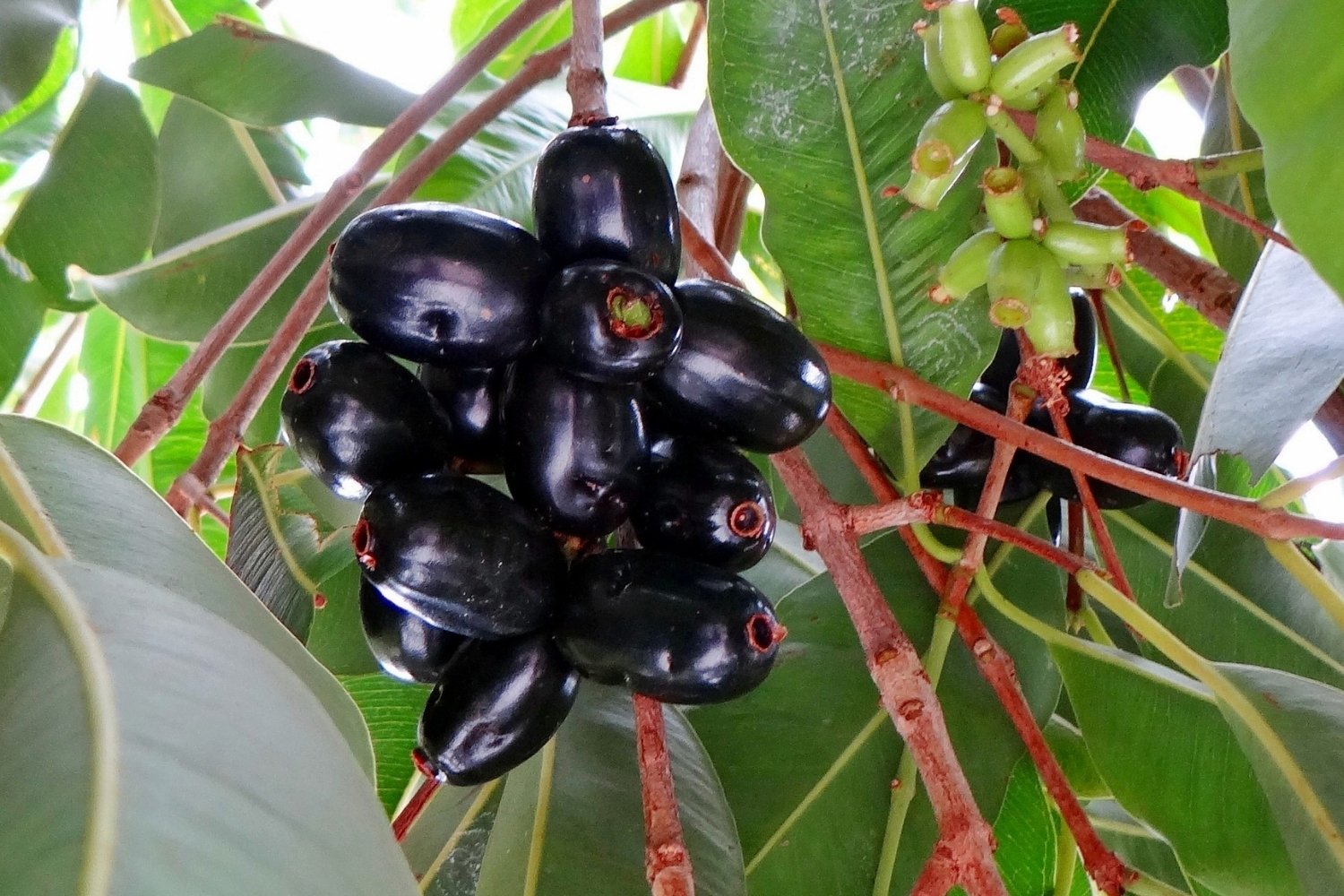
Jambul, also known as Java plum or black plum, is a tropical fruit native to India and Southeast Asia. This small, dark purple fruit packs a punch with its unique flavor and numerous health benefits. Ever wondered why this fruit is so special? Jambul is rich in vitamins, minerals, and antioxidants, making it a powerhouse for boosting immunity and overall health. Its sweet and tangy taste can be enjoyed fresh, in juices, or even in traditional dishes. Curious about more? Let's dive into 27 fascinating facts about Jambul that will leave you craving this exotic fruit!
What is Jambul?
Jambul, also known as Java plum or black plum, is a tropical fruit native to the Indian subcontinent and Southeast Asia. This fruit is not only delicious but also packed with nutrients. Let's dive into some fascinating facts about Jambul.
Nutritional Benefits of Jambul
Jambul is a powerhouse of nutrients. It offers a variety of health benefits that make it a valuable addition to any diet.
- Jambul is rich in vitamin C, which helps boost the immune system.
- It contains iron, essential for producing red blood cells.
- The fruit is high in antioxidants, which protect the body from free radicals.
- Jambul has dietary fiber, aiding in digestion and preventing constipation.
- It is low in calories, making it a great snack for weight-conscious individuals.
Historical Significance of Jambul
Jambul has a rich history and cultural significance in various regions.
- In ancient India, Jambul was considered sacred and often used in religious rituals.
- The fruit is mentioned in Ayurvedic texts for its medicinal properties.
- Jambul trees are often planted near temples and sacred places in India.
- In Buddhist culture, the fruit symbolizes peace and prosperity.
- The wood of the Jambul tree is used in traditional Indian carpentry.
Jambul in Traditional Medicine
Traditional medicine systems have long recognized the health benefits of Jambul.
- In Ayurveda, Jambul is used to treat diabetes due to its ability to regulate blood sugar levels.
- The seeds of the fruit are ground into a powder and used as a natural remedy for digestive issues.
- Jambul leaves are used to make herbal teas that help in detoxifying the body.
- The bark of the tree is used in traditional medicine to treat sore throats and gum diseases.
- Jambul juice is believed to improve liver function and purify the blood.
Culinary Uses of Jambul
Jambul is not just a health booster; it also adds a unique flavor to various dishes.
- The fruit is often used to make jams and jellies.
- Jambul can be fermented to produce a type of wine.
- In some cultures, the fruit is used to make pickles.
- Jambul is a popular ingredient in smoothies and fruit salads.
- The fruit can be dried and used as a spice in traditional recipes.
Interesting Facts About Jambul Trees
The Jambul tree itself is quite fascinating and has some unique characteristics.
- Jambul trees can grow up to 30 meters tall.
- The tree is known for its hardwood, which is resistant to water.
- Jambul trees can live for over 100 years.
- The tree's flowers are small and fragrant, attracting bees and other pollinators.
- Jambul trees are often planted to prevent soil erosion due to their extensive root systems.
Environmental Impact of Jambul
Jambul trees play a significant role in the environment.
- The trees provide shade and help in cooling the surrounding areas.
- Jambul trees are known to improve air quality by absorbing pollutants.
Final Thoughts on Jambul
Jambul, also known as Java plum, is more than just a tasty fruit. Packed with vitamins, minerals, and antioxidants, it offers numerous health benefits. From improving digestion to managing blood sugar levels, this fruit is a powerhouse. Its leaves, bark, and seeds are also used in traditional medicine. Jambul trees are hardy, thriving in various climates, making them a valuable addition to any garden. Plus, their shade and beauty add aesthetic value. Whether you're looking to boost your health or simply enjoy a delicious snack, jambul is a fantastic choice. So next time you see this purple gem, give it a try. You might just find a new favorite fruit. Thanks for joining us on this fruity adventure!
Was this page helpful?
Our commitment to delivering trustworthy and engaging content is at the heart of what we do. Each fact on our site is contributed by real users like you, bringing a wealth of diverse insights and information. To ensure the highest standards of accuracy and reliability, our dedicated editors meticulously review each submission. This process guarantees that the facts we share are not only fascinating but also credible. Trust in our commitment to quality and authenticity as you explore and learn with us.
